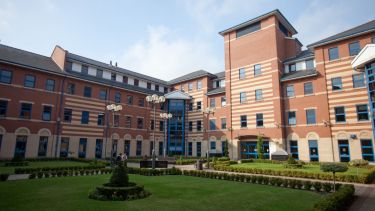Brain-inspired neuromorphic computing: Towards fast, efficient and adaptive AI systems: Lyes Khacef

Event details
This event has taken place.
Description
For the next ML group seminar we are very excited to have Dr Lyes Khacef from Sony joining us for an in-person talk (it will also be accessible over Google Meet).
Title: Brain-inspired neuromorphic computing: Towards fast, efficient and adaptive AI systems
Abstract: The rise of mobility, IoT and wearables has shifted processing to the edge of the sensors, driven by the need to reduce latency, communication costs and overall energy consumption. While deep learning models have achieved remarkable results in various domains, their deployment at the edge for real-time applications remains computationally expensive. Neuromorphic computing emerges as a promising paradigm shift, characterized by co-localized memory and computing as well as event-driven asynchronous sensing and processing. In this talk, we will see how to solve the ubiquitous computer vision task of object detection at the edge with the SynSense Speck neuromorphic chip, which comprises both an event-based sensor and a spike-based asynchronous processor. We will see how to reduce precision discrepancies between off-chip clock-driven simulation used for training and on-chip event-driven inference which achieves face detection with an average running power of 20mW. We will further see how we can go beyond inference and enable adaptation with online learning in neuromorphic hardware, using local synaptic plasticity mechanisms. Finally, we will discuss the current challenges and opportunities of neuromorphic computing, from modeling to training and benchmarking.
Bio: Dr. Lyes Khacef () is a Senior Research Scientist at Sony in Zurich. He earned his Master's degree in Embedded Systems in 2017 from Université Côte d'Azur (France), where he later pursued a PhD in Brain-Inspired Computing. During his doctoral studies, Lyes worked on multimodal association mechanisms inspired by the brain’s self-organizing capabilities, particularly through synaptic and structural plasticity. After defending his PhD in 2020, he joined the University of Groningen (Netherlands) as a postdoctoral researcher, where he worked on modeling and hardware implementation of local synaptic plasticity for real-time, online learning. In 2022, Lyes joined Sony Europe, where he is currently exploring the integration of event-based vision sensors with neuromorphic spike-based processors. Lyes published over 20 peer-reviewed papers in journals and conferences, aiming to develop fast, energy-efficient, and adaptive AI systems.
